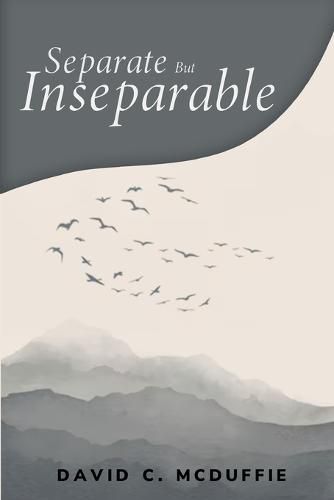Readings Newsletter
Become a Readings Member to make your shopping experience even easier.
Sign in or sign up for free!
You’re not far away from qualifying for FREE standard shipping within Australia
You’ve qualified for FREE standard shipping within Australia
The cart is loading…






This title is printed to order. This book may have been self-published. If so, we cannot guarantee the quality of the content. In the main most books will have gone through the editing process however some may not. We therefore suggest that you be aware of this before ordering this book. If in doubt check either the author or publisher’s details as we are unable to accept any returns unless they are faulty. Please contact us if you have any questions.
The idea for this project first began to come to me after I had completed the requirements for the University of Georgia's Environmental Ethics Certificate Program. I had written my certificate capstone paper on the role of ecological knowledge in relation to forming a Christian theology of ecology, which would support a viable ethic of the natural environment. I had built this theological conception around the philosophical framework of Alfred North Whitehead's process philosophy arguing that Whitehead's system supported a theistic perspective, which was understood as being predicated upon the best available ecological science. In other words, I contended that process theism provided a theological option which would be compatible with modern science and would therefore be conducive to perpetuating an ethic, which would be ecologically credible. Furthermore, I held that a philosophical and theological approach to the natural environment supported by a process framework would perpetuate an ethic which would recognize ecological holism while maintaining attribution of value at the level of the biotic individual. In brief, I thought that process thought could provide a system which would adequately take into account the holism inherent within an ecological worldview while not negating the value of the individuals which exist within and contribute to the world's ecosystems.
$9.00 standard shipping within Australia
FREE standard shipping within Australia for orders over $100.00
Express & International shipping calculated at checkout
This title is printed to order. This book may have been self-published. If so, we cannot guarantee the quality of the content. In the main most books will have gone through the editing process however some may not. We therefore suggest that you be aware of this before ordering this book. If in doubt check either the author or publisher’s details as we are unable to accept any returns unless they are faulty. Please contact us if you have any questions.
The idea for this project first began to come to me after I had completed the requirements for the University of Georgia's Environmental Ethics Certificate Program. I had written my certificate capstone paper on the role of ecological knowledge in relation to forming a Christian theology of ecology, which would support a viable ethic of the natural environment. I had built this theological conception around the philosophical framework of Alfred North Whitehead's process philosophy arguing that Whitehead's system supported a theistic perspective, which was understood as being predicated upon the best available ecological science. In other words, I contended that process theism provided a theological option which would be compatible with modern science and would therefore be conducive to perpetuating an ethic, which would be ecologically credible. Furthermore, I held that a philosophical and theological approach to the natural environment supported by a process framework would perpetuate an ethic which would recognize ecological holism while maintaining attribution of value at the level of the biotic individual. In brief, I thought that process thought could provide a system which would adequately take into account the holism inherent within an ecological worldview while not negating the value of the individuals which exist within and contribute to the world's ecosystems.